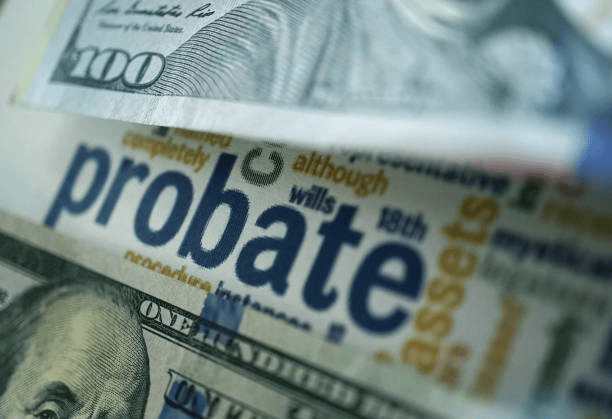When is probate required in NSW i.e. New South Wales? Before we answer this question, let’s see what probate is. Probate is the legal process of validating the Will of a deceased person, thus releasing their assets to the executor named in the Will. Executors are the people who are responsible for releasing assets to beneficiaries of a Will.
Financial institutions and asset holders usually require probate in order to allow executors to distribute the assets of the deceased person. So, when is probate required in New South Wales? For instance, let’s suppose we have Linda’s property registered under the NSW Land Registry Services.
If Linda indicated her two daughters will inherit her property, then the land registry will need her Will to go to probate. The registry will need a legal Will in order to allow the executor of Linda’s Will to administer and distribute property. This article will answer the question “when is probate required NSW?”
What Does the Probate and Administration Act Say?
According to Section 44 of the Probate and Administration Act 1898, the executor is not legally authorised to handle a deceased person’s estate unless probate is obtained. The Section of this Act also states that this will prevent the executor from being held personally liable for hampering with the deceased’s estate and assets if a new Will is discovered.
Granting Probate for the Will of the Deceased Person in NSW
Following the grant of probate, executors can publish their intention of distributing assets to intended beneficiaries in the New South Wales Online Registry. The publication will also include the executor paying debts to creditors. However, the executor will have to wait for at least 30 days to distribute the assets from the date of publication. Meanwhile, it would take 6 months after the Will-maker’s death before paying debts to creditors.
Does the Executor Need to Show a Death Certificate?
Yes. The applicant must also include the following documents like the certified copy of the Will, the original death certificate, and the probate application filing fee to the supreme court. Click here to view the updated court filing fee for probate in the Supreme Court of NSW. Executors can look for a death certificate in the NSW Registry of Births, Deaths, & Marriages.
The Purpose of the Online Notice and the Supreme Court of NSW
The purpose of publishing the executors intent for asset distribution, and paying creditors is to see if anyone will contest or challenge the Will in the supreme court. A person contests a Will if they believe that they are a supposed beneficiary in the Will or should receive more than what the Will states. On the other hand, when a party challenges a Will, it means they are questioning the Will’s validity. In doing so, they may argue that the Will-maker made the Will fraudulently or undue influence.
Let’s suppose the executor is getting probate and plans to publish the required probate notice in newspapers. The executor may be liable for any dealings or intended distribution made in relation to the estate assets. This is the case even if the executor made these transactions with clean and good intentions. That’s why it’s also important for executors to remember when is probate required in NSW.

When Is Probate Not Required in NSW?
Joint Tenants
Let’s take Linda as an example again. For instance, Linda purchased her property along with her husband, Michael. Buying a property together makes them joint tenants. Joint tenancy is where two or more people own the same property together. These joint tenants also own the entire asset and share undivided ownership.
Now, if Linda passes away, Michael, the surviving joint tenant, will become the new owner of the deceased person’s property and will receive all shares of the assets. Linda’s executor won’t have to go through the probate process if her bank accounts, cars, and property are with her joint tenant, Michael.
Tenants in Common
Tenants in common generally occurs if two or more persons own a specific share of an asset. This also allows them to sell or dispose of their share of the asset. For instance, couples Dennis and Daphne bought their marital home with a 70-30 share (30 per cent for Dennis and 70 per cent for Daphne). Even if they own unequal shares, both of them still have the right to occupy and use all of the property.
If Dennis passes away, he can state in his Will where his share will go. Now, what happens to Daphne if she continues to live? She will only continue to only hold her share and will not become the new owner of Dennis’ property.
Assets With Low Value
There are estate transfer policies that will set an asset value threshold where they will require probate. Assets worth less than the specified amount do not require probate. The asset holder will, however, still require documentation to validate its transfer and distribution. Here are tips for executors if a probate grant is required.
- Contact organisations like land registries or banks if they are holding a deceased’s assets and properties;
- Identify if they are held solely, jointly, or as tenants in common;
- Check the current market value of each asset; and
- Identify any liabilities.
Related Case
In the supreme court case involving the estate of Patricia Ada White (2012), Ms White failed to validate her Will. Ms Ada White made a Will in June 1997 stating that she will leave her estate to her three children in specific portions. One of her sons contacted Ms White’s solicitor telling him that he needs to review and amend her Will.
She wanted her new Will to include her grandchildren receiving part of her estate. This is because Ms White had cancer, and she would not have the ability to amend her Will on her own. On September 16, 2011, Ms White went to her solicitor’s office and then drafted a new Will on September 19, 2011.
The solicitor then asked Ms White’s son to tell her that she will need to sign the new Will. Unfortunately, Ms White died on September 22, 2011, and was unable to sign her Will. So this case also answers our question “when is probate required in NSW?”. Ms White’s children will need to validate her Will through probate since she is unable to do it herself.
All of Ms White’s children viewed and respected her last wishes in her Will. Fortunately, no children wanted to contest or challenge the Will either. Indeed, Ms White wasn’t able to sign and formally execute it, however, she had the testamentary capacity and was able to see the drafted form of the Will. Hence, her children successfully applied for a grant of probate of the new Will in the supreme court of NSW.

Obtain Probate With JB Solicitors
It’s important to seek legal advice when one is wondering “when is probate required in NSW?”. People might need to file probate applications if there is a big estate. Moreover, this is the case if banks or land registries hold the deceased person’s assets and properties. This makes obtaining probate a lot difficult in such circumstances and causes unnecessary delays when done alone.
Hence, we at JB Solicitors continue to provide the best legal advice about simple and complex Wills and probate. We can also act as a nominated executor and a substitute executor for Wills and ensure legal compliance with state laws and regulations. Our lawyers can also help people who want to contest or challenge a Will and represent them in court. We also have mediation services for parties who want to come to an agreement.
Contact us today for any queries regarding “when is probate required NSW?”
